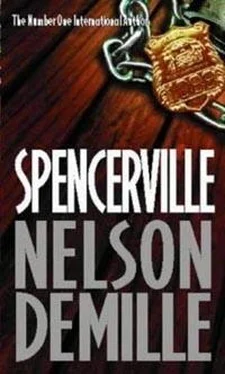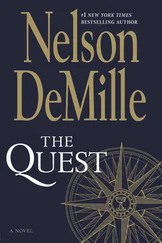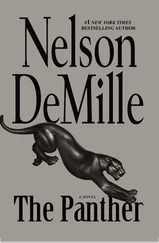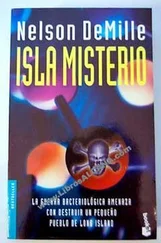The three big buildings in town were also closed — the movie house, the old hotel, and Carter's, the local department store. Missing, also, were the two hardware stores, the half dozen or so grocery stores, the three sweetshops with soda fountains, and Bob's Sporting Goods, where Keith had spent half his time and most of his money.
A few of the old places remained — Grove's Pharmacy, Miller's Restaurant, and two taverns called John's Place and the historic Posthouse. The courthouse crowd no doubt kept these places afloat.
Downtown Spencerville was surely not as Keith remembered it as a boy. It had been the center of his world, and without romanticizing it, it seemed to him that it had been the center of life and commerce in Spencer County, bursting with 1950s prosperity and baby-boomer families. Certainly, the movie theater, the sweetshops, and the sports store made it a good place for kids to hang out.
Even then, however, the social and economic conditions that were to change Main Street, USA, were at work. But he didn't know that then, and, to him, downtown Spencerville was the best and greatest place in the world, teeming with friends and things to do. He thought to himself, "The America that sent us to war no longer exists to welcome us home."
You didn't have to be born in a small town, Keith thought, to have a soft spot in your heart for America's small towns. It was, and to some extent it remained, the ideal, if only in an abstract and sentimental way. But beyond nostalgia, the small town dominated much of the history of the American experience; in thousands of Spencervilles across the nation, surrounded by endless farms, American ideas and culture formed, took hold, flourished, and nourished a nation. But now, he thought, the roots were dying, and no one noticed because the tree still looked so stately.
He approached the center of town and saw one building that had not changed: Across from Courthouse Square stood the impressive police headquarters, and, outside, among the parked police cars, a group of police officers stood, talking to a man who Keith instinctively knew was Police Chief Baxter. He also noticed now, a few buildings away from police headquarters, the County Hospital Thrift Store.
Keith drove around the massive courthouse, which was set on a few acres of public park. The administration of justice, civil and criminal, and the proliferation of bureaucratic agencies were still a growth business at the close of the American Century, even in Spencer County. The courthouse was once thought of as a boondoggle and a giant folly, but the visionaries who built it must have anticipated the kind of society that was to inherit the nation.
Aside from the courts, the building housed the prosecutor's office, the Welfare Department, a public law library, the county surveyor, the state agricultural office, the Board of Elections, and a dozen other acronymic government agencies; the Ministry of Everything, its sixteen-story clock tower rising in Orwellian fashion above the decaying city around it.
There were a number of people in the park surrounding the courthouse, kids on bikes, women with baby carriages and strollers, old people on benches, government workers on break, and the unemployed. For a moment, Keith could imagine that it was the summer of 1963 again, the summer he'd met Annie Prentis, and that the past three decades had not happened, or better yet, had happened differently.
He came full circle around the courthouse, turned back onto Main Street, and continued toward its western end, where grand old houses stood. This was once a prime residential street, but it was rundown now, the big places given over to boardinghouses, informal daycare centers, a few low-rent offices, and the occasional craft shop that hopefully paid the mortgage and taxes.
Main Street widened into four lanes at the sign that said, "City Limits," and became the highway that led to the Indiana border. But it was no longer rural, Keith saw, and had become a commercial strip of chain supermarkets, convenience stores, discount stores, and gas stations. Huge plastic signs stood atop tall stanchions as far as the eye could see: Wendy's, McDonald's, Burger King, Kentucky Fried Chicken, Roy Rogers, Domino's Pizza, Friendly's, and other fine and fast-dining spots, one after the other, all the way out to Indiana, for all he knew, maybe all the way to California — the real Main Street, USA.
At any rate, this was what had killed downtown, or perhaps downtown had killed itself because of a lack of vision, as well as a profound break with, and misunderstanding of, the past. In a perfect little hometown such as the ones he'd seen in New England, the past and the present were one, and the future was built carefully on the existing foundations of time.
But Keith supposed that if he'd stayed here and seen the changes evolve, rather than experiencing them in five-year gulps, he'd be less nostalgic and not as startled by the physical transformation.
There being not a single grocery store left in downtown Spencerville, Keith had to forgo that experience, and he pulled into the lot of a big supermarket.
He took a cart and went inside. The aisles were wide, the place was air-conditioned and clean, and the goods were mostly the same as in Washington. Despite his longing for Mr. Erhart's chaotic grocery store, the modern supermarket was truly America's finest contribution to Western civilization.
Ironically, Keith's urban shopping street in Georgetown was more like rural Spencerville than Spencerville. There, Keith, on his rare shopping trips, went from one small specialty store to another. The supermarket concept was alien to him but instantly understandable. He pushed his cart up and down the aisles, took what he needed, met the glances of housewives and old-timers, smiled, said "Excuse me," and didn't compare prices.
He was surprised at the number of people he didn't know and recalled a time when he'd wave to half the people downtown. However, there was a familiar face now and then, and some people seemed to recognize him but probably couldn't place his face or recall his name. He saw at least ten women of his own age that he'd once known and saw a man he'd once played football with. But dropping out of the sky as he had, he wasn't prepared to stop and identify himself.
He didn't see any of his former best friends and, if he had, he'd have been a little embarrassed because he hadn't kept in touch with any of them and hadn't attended a single class reunion. Aside from his family, his only contact with Spencerville had been Annie.
He saw her turning a corner and pushed his cart faster, then abandoned it and caught up with her. But it wasn't her, and in fact didn't look at all like her, and he realized he was having a tiny midafternoon hallucination.
He went back to his shopping cart, and, without finishing his shopping, he checked out and took his bags to his car.
A Spencerville police car with two officers inside was blocking him. He loaded his groceries and got into his Saab and started it up, but they didn't move. He got out of his car and went to the driver. "Excuse me, I'm getting out."
The cop stared at him a long time, then turned and said to his partner, "I thought all the migrant workers left by now." They both laughed.
This was one of those moments, Keith thought, when the average American citizen, God bless him, would tell the police to fuck off. But Keith was not an average American, and he'd lived in enough police states to recognize that what was happening here was a deliberate provocation. In Somalia or Haiti, or a dozen other places he'd been, the next thing to happen would be the death of a stupid citizen. In the old Soviet empire, they rarely shot you on the street, but they arrested you, which was where this incident was headed unless Keith backed off. He said, "Whenever you're ready."
Читать дальше












